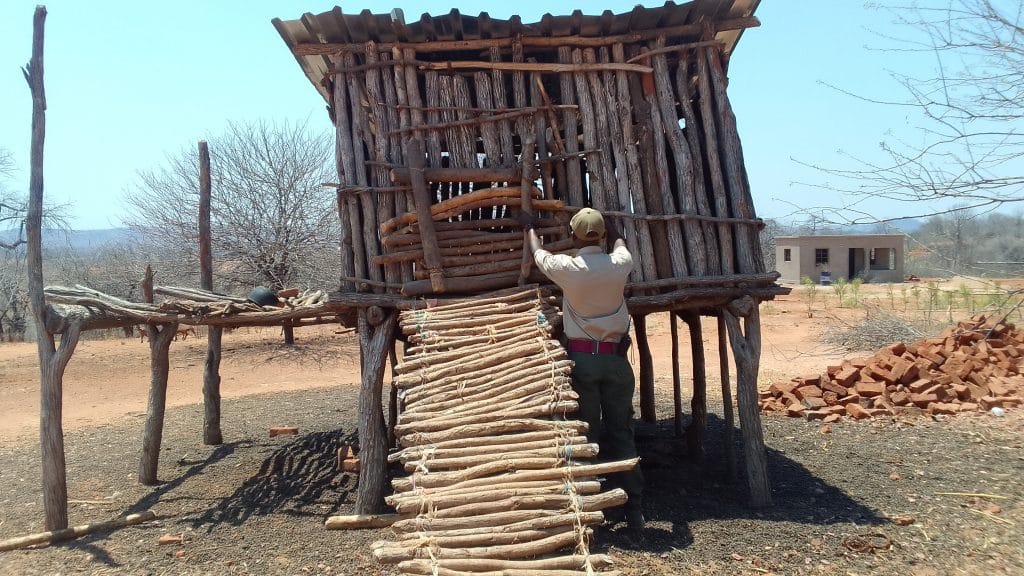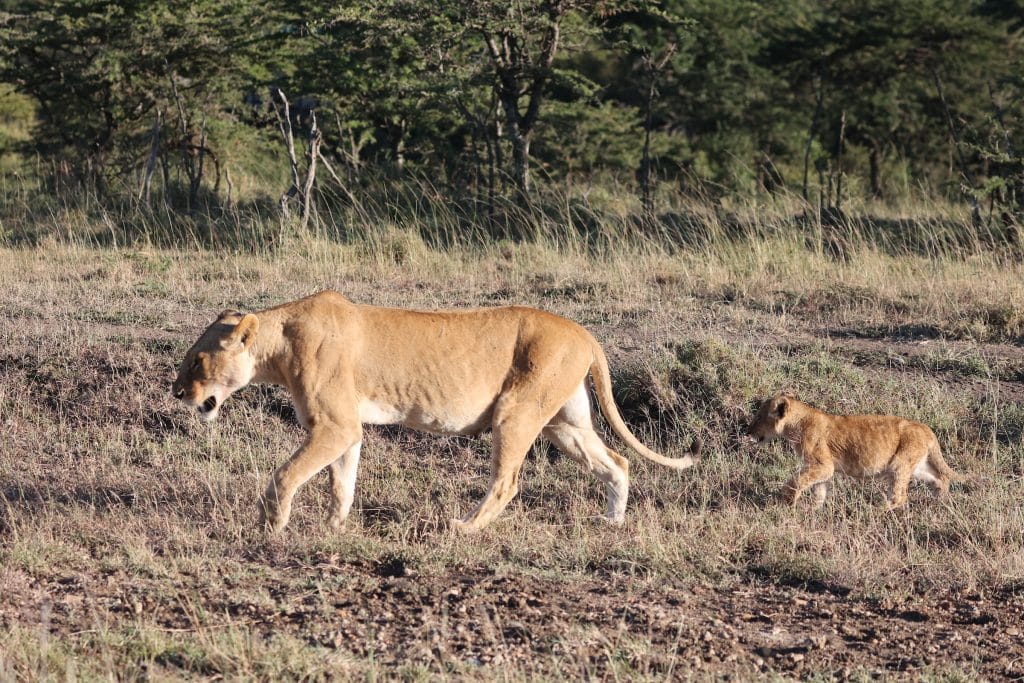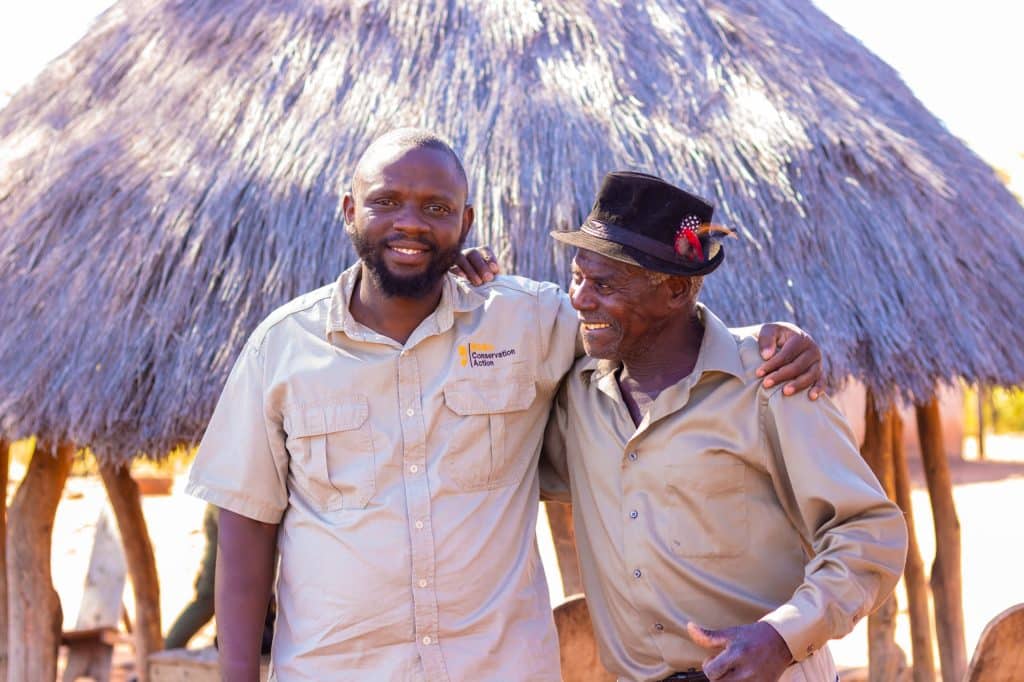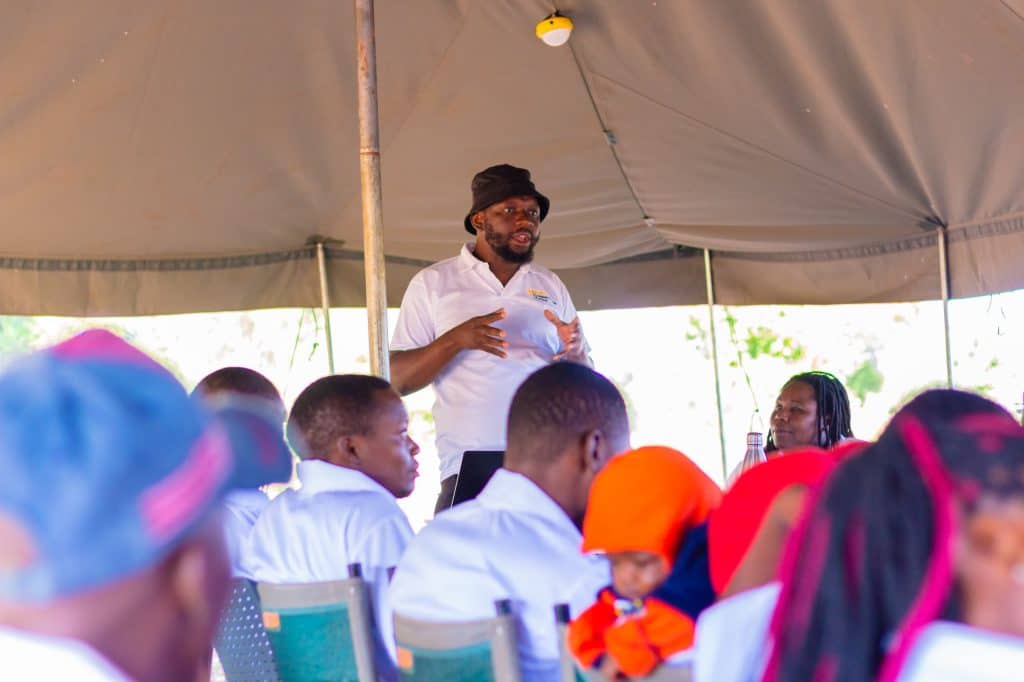With a firm grip, Simbarashe Pride Chatikobo shook one of the pen’s wooden struts, testing its stability. Fortunately, the raised platform of the kraal—a fortified enclosure for small livestock—did not budge, indicating that the training he facilitated for the farmers living near Zimbabwe’s Matusadona National Park had been successful. Raising this farmer’s kraal off the ground provides an added layer of defense against lions, hyenas, and leopards, who otherwise could prey on her goats. Raised kraals are just one human-carnivore coexistence strategy employed by Simbarashe, whose career with Wildlife Conservation Action (WCA) has also risen to new heights thanks to the support he receives from WCN’s Rising Wildlife Leaders Career Program.
Lions account for a significant portion of livestock predation around Matusadona, and retaliation from farmers has left their population unstable. Simbarashe strives to reduce the frequency and severity of lion conflict incidents and fatalities, and to shield farmers from losing livestock that their livelihoods depend on. Getting these rural communities to associate living alongside wildlife with benefits, not hardship, is at the core of Simbarashe’s work—work that, a year ago, he wasn’t certain that he could continue.
The high costs of living, field travel, and equipment once threatened to cut Simbarashe’s promising career as a conservationist short. WCN’s Career Program fosters career growth for local conservationists like Simbarashe by providing them with the resources they need to succeed, and crucially, to avoid switching professions. This includes up to three years of flexible financial support, tailored training and peer learning opportunities, and mentorship, all so these rising wildlife leaders can overcome institutional barriers and thrive in their careers. Support provided by WCN alleviated Simbarashe’s financial stress at a critical time in his life, allowing him to continue his journey as a conservationist rather than pivoting to a career as a truck driver. He also networked with other conservationists in the Program to share insights and learn new skills like project management, advanced wildlife monitoring techniques, and grant writing.
These skills enabled Simbarashe to lead with confidence as the Human-Wildlife Conflict Programs Officer at WCA, where his team has grown from just two people to 30 in a single year. Simbarashe incorporates knowledge gained through WCN’s Career Program into the strategies that his team employs—building raised kraals, constructing mobile canvas enclosures for livestock, installing predator deterrent lights around farms, and hosting conflict mitigation workshops. Most importantly, Simbarashe selects and supports people from within these communities to be Community Guardians who are trained to lead human-wildlife conflict interventions. Thanks to these interventions, lion conflict incidents with farmers in their project area around Matusadona have dropped by more than 57% in the last three years.
After helping raise her kraal, Simbarashe shook the farmer’s hand, happy in the knowledge that both the goats and the lions now had a better chance at survival. Through skill-building and financial support, WCN’s Rising Wildlife Leaders Career Program has significantly transformed Simbarashe’s career and reinforced his commitment to conservation for years to come.





